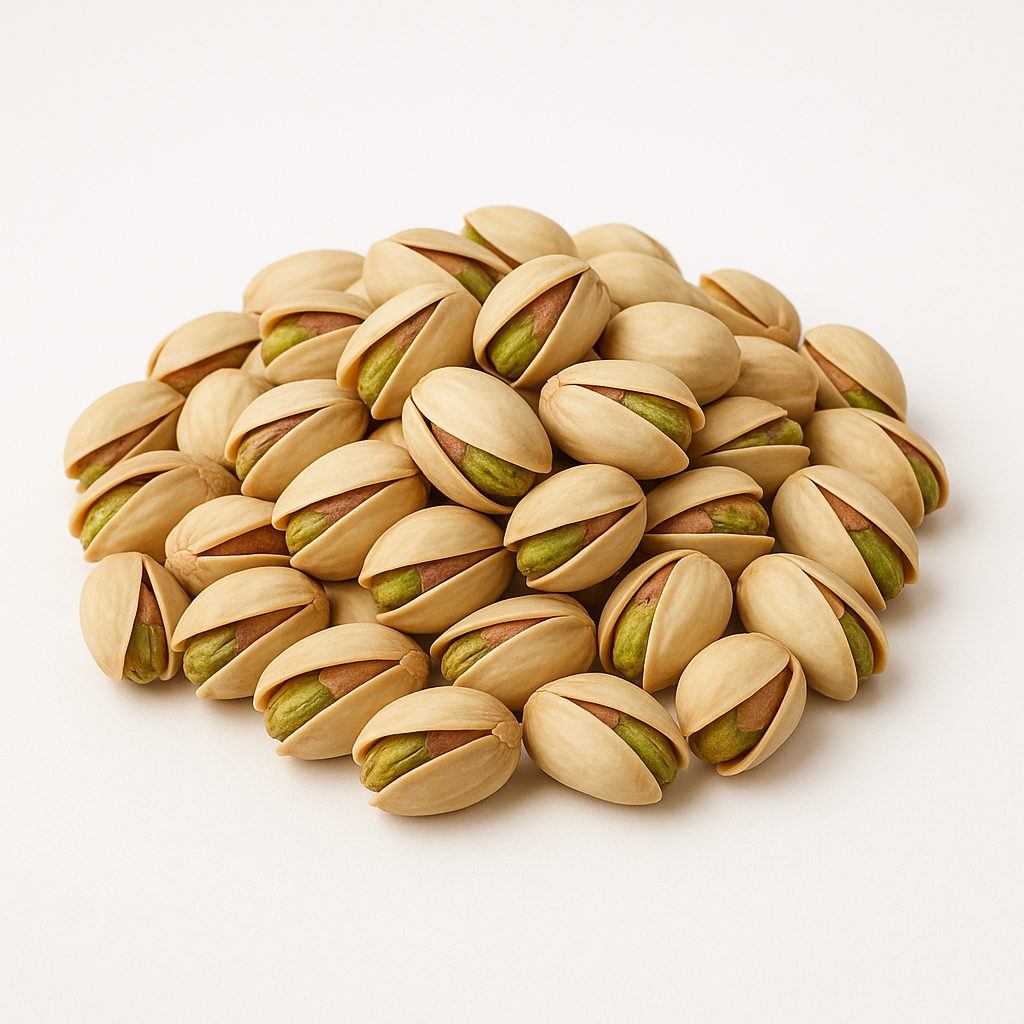Wadi
Pistachios
Pistachios
Couldn't load pickup availability
Primary Uses:
1. Culinary Uses:
a. Snacking
b. Baking
c. Cooking
d. Garnishing
2. Flavoring Uses:
a. Ice cream
b. Yogurt
c. Smoothies
d. Trail mix
3. Aroma Uses:
a. Perfumes
b. Candles
c. Soaps
d. Lotions
Other Uses:
1. Medicinal uses: Pistachios are a good source of vitamins and minerals, including vitamin B6, potassium, and magnesium. They have been shown to improve heart health, lower cholesterol levels, and reduce the risk of diabetes.
2. Religious uses: Pistachios are often used in religious ceremonies and rituals, particularly in the Middle East. They are sometimes used as a symbol of fertility and abundance.
3. Ornamental uses: Pistachio trees are often grown for their ornamental value, as they have attractive foliage and produce colorful fruit.
4. Insect repellent: The oil extracted from pistachio shells has been shown to have insecticidal properties, and is sometimes used as a natural insect repellent.
5. Dyeing agent: The shells of pistachios can be used to create a natural dye, which is often used in textiles and other crafts.
6. Folklore uses: Pistachios have been used in folklore and traditional medicine for centuries. They are sometimes believed to have magical properties, and are used in various rituals and remedies.
7. Culinary garnish: Pistachios are a popular ingredient in many cuisines, and are often used as a garnish for dishes such as salads, desserts, and pastries.
Caution:
1. High calorie content: Pistachios are high in calories, which can lead to weight gain if consumed in excess.
2. Allergy risk: Some people may be allergic to pistachios, which can cause severe reactions such as anaphylaxis.
3. Expensive: Pistachios are generally more expensive than other types of nuts, making them less accessible to some consumers.
4. High fat content: Pistachios are high in fat, which can contribute to high cholesterol levels and other health problems if consumed in excess.
5. Processing concerns: Some pistachios may be processed with chemicals or additives, which can be harmful to health.
6. Limited availability: Pistachios are not always readily available in all regions, making them difficult to obtain for some consumers.
7. Environmental impact: Pistachio farming can have a negative impact on the environment, particularly in areas where water resources are limited.
Share


